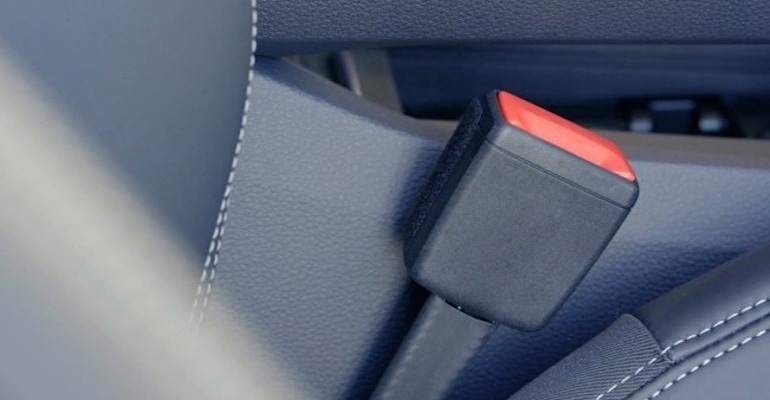Waste normally destined for energy recovery finds new life in high-performance vehicle.
November 30, 2022

LyondellBasell and Audi have collaborated to help close the loop for co-mingled automotive plastic waste. Audi is installing plastic seatbelt-buckle covers in the Q8 e-tron made using LyondellBasell polypropylene based on a chemically recycled feedstock.
Plastic components from customer vehicles that can no longer be repaired are dismantled, shredded, and processed via chemical recycling into pyrolysis oil. The pyrolysis oil is then used as a raw material in LyondellBasell’s manufacturing process for the production of new plastics, replacing virgin fossil feedstocks. The recycled content is attributed to the Audi product via a mass balance approach.
“As part of the PlasticLoop project, we are working with Audi to establish an innovative closed-loop process, recycling plastic automotive parts for use in new vehicles,” said Erik Licht, LyondellBasell Advanced Polymer Solutions New Business Development Director. “For the first time, we are using [a] chemical [process] to recycle mixed automotive plastic waste into plastic granulate for automotive interior applications. The plastic granulate is then used in the production of the seatbelt-buckle covers for the Audi Q8 e-tron.”
With this process, LyondellBasell, Audi, and chemical recycler SynCycle (Next Generation Group and BDI) have succeeded in recycling a stream of material that today is mostly only suitable for energy recovery. This reduces the use of fossil-based primary materials for the Audi Q8 e-tron and keeps valuable feedstock in a circular loop. Materials produced from pyrolysis oil are of the same high quality as virgin materials and have the same properties. Chemical recycling offers an alternative to energy recovery and complements mechanical recycling.
"Audi's vision is to use secondary materials wherever it is technically possible, economically viable, and ecologically beneficial,” said Philipp Eder, Project Manager for Circular Economy in the Supply Chain at Audi. “The PlasticLoop project is part of Audi's circular economy strategy and a good example of cross-sector cooperation within the Audi supply chain. Findings from the project are also incorporated into the product development of future vehicle projects.”
LyondellBasell’s polymer product (including fillers and additives) is manufactured via chemical recycling using 70% recycled content by weight. The recycled content is allocated by a mass balance method, and validated by independent certification body ecoloop. This means that recycled and non-recycled feedstocks are mixed in the production process, and an amount of recycled feedstock equivalent to 70% of the Audi product was attributed using a certified mass balance accounting methodology.
You May Also Like


